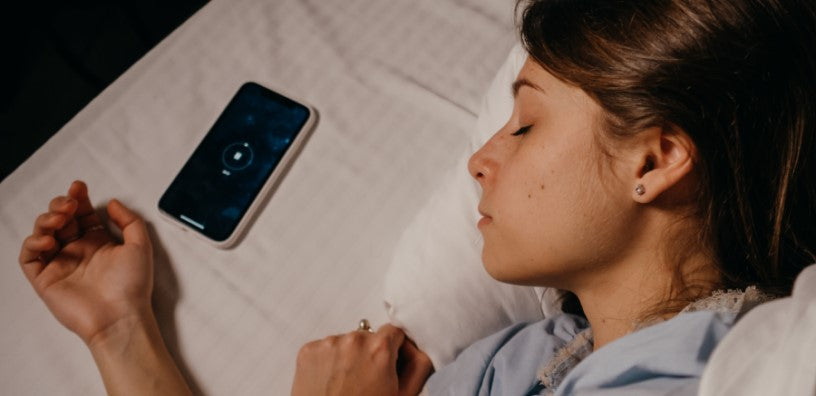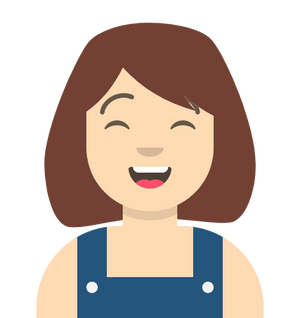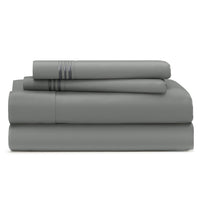
Are Naps Actually Good For You?
Naps are quite controversial in the medical community, surprisingly enough. That’s because napping can potentially backfire on you.
Wondering how? Look no further. We researched for you!
Keep reading to learn more about the art of taking a nap.
The Benefits of Napping

Napping can be a good thing—within the context of the individual. Your age, sleeping patterns, and cycles, among other factors, affect whether or not that afternoon cat nap could pose a threat to your health. Napping is about finding the right balance for your lifestyle. People need to get the right quantity and quality of rest because, overall, people who sleep too much or too little may have poor health as a consequence [1,2,3].
Sleep experts have found that napping can have the following benefits [1,2,3]:
- One study found that taking a quick nap about two or three times a week was beneficial for heart health.
- Another study found that people who napped for 30 to 90 minutes had better word recall than people who did not nap or who napped for longer than 90 minutes.
- Some people who don’t get enough sleep at night or suffer from daily anxiety find that a quick nap promotes relaxation, peacefulness, and a reduction in general fatigue.
- Others find that a short nap during the day increases their alertness as well as their overall mood.
- Some studies show that napping can improve performance, including quicker reaction time and better memory.
The Drawbacks of Napping

Most researchers agree—naps should be shorter than 30 minutes or within the 30- to 90-minute range, and anything longer than an hour and a half may create problems for you down the road. Experts say daily napping may be a sign of inadequate nighttime sleep or an underlying health problem, so it is very important to talk to your healthcare provider for the proper guidance when it comes to figuring out if napping is right for you [1,2,3].
What kind of problems can napping cause, you ask? Let’s take a look at just a couple [1,2,3]:
- Sleep inertia: Feel groggy, disoriented, or “fuzzy-headed” after waking up from a nap? This could be a sign of sleep inertia, which could also potentially limit your focus, cognition, and ability to remain alert afterward.
- Nighttime sleep problems: If you experience insomnia, poor sleep quality at night, or it takes more than 30 minutes to fall asleep past bedtime, long or frequent naps might worsen these issues. One study found that naps longer than 90 minutes (typically called “a second sleep”) may be a sign of poor quality nighttime sleep, which could potentially even lead to cognitive problems.
If I am taking more naps than usual, what does that mean?
Experiencing an increase in needing to catch some shut-eye during the day? Are there no obvious signs of the cause of your newfound tiredness? You will need to talk with your doctor if either of these is the case. Certain medications, sleep disorders, or other underlying medical conditions might be disrupting your nighttime sleep.
Can I Take A Nap Without It Backfiring?

Sometimes we do need to just “close our eyes” for a few, but finding that Goldilocks-like balance when it comes to taking a nap without it coming back to haunt you is key. Here’s what you need to know:
How should I take a nap?
You should consider spacing out some time for a quick nap if you are [1,2,3]:
- Experiencing seemingly “random” tiredness or unexpected sleepiness. (Please consult a healthcare provider first.)
- About to experience sleep loss—for example, due to a long, busy work shift.
- Wanting to make planned naps part of your routine for their potential benefits.
To get the most out of a nap, you can try some or all of the following [1,2,3]:
- Keep them short. Aim to nap within the golden 30- to 90-minute range, or even better, less than 30 minutes. Shorter naps can ensure you don’t have trouble falling asleep at night and are less likely to feel “fuzzy-headed” afterward. However, some research says that the best time for older adults to take to nap is between 1 and 4 p.m. because of their sleep-wake cycles.
- Nap in the early afternoon. Taking a nap in the evening or right before bedtime is a big no-no in the sleep community, as it might interfere with the quality and quantity of your nighttime sleep. Talk to your doctor to learn what the best times for you are.
- Give yourself time to wake up. After napping, make sure you’ve set enough time aside to wake back up before resuming any activities—particularly those that require a quick or more alert, focused response.
How can I get better sleep in general?
Taking a nice nap during the day is just the start. If you want a truly good nap, look at your nightly sleeping patterns and schedule first. Are you getting adequate sleep each night? If the answer is no, read below to set up your bedroom for better quality sleep, and then check out our guide that gives you 8 more in-depth tips to fall asleep fast [4,5].
- Make your bedroom a calming oasis. Cosy Lavender Linen Spray, inspired by aromatherapy and formulated without aerosols, dyes, propellants, and synthetic fragrances, is the perfect way to get started.
- Turn it off! Don’t use any form of technology for at least 30 minutes before bed. Blue light affects both your quality and quantity of sleep.
- Calm your nervous system. Queue our Luxury Weighted Blanket, designed with unique deep-touch pressure stimulation technology created by thousands of tiny glass beads to reduce feelings of anxiety while also promoting tranquility.
- Switch your old sheets for bamboo viscose sheets. Bamboo viscose carries thermal-regulating properties that balance your body’s temperature, keeping you cool and comfortable all night long for a deeper rest. If you’re a hot sleeper, our Luxury Bed Sheets are made for you!
- Get comfy when you hit the hay. Our Bamboo Viscose Loungewear is just the thing—made with the highest-quality bamboo viscose blend for a breathable, moisture-wicked, and cooling night’s rest.
Looking for more ways to boost your naptime and nighttime routine? Click here to treat yourself to quality essentials without breaking your budget.
What are some of your naptime essentials? Let us know in the comments below. The Cosy community loves hearing from each one of you!
We've gone ahead & enclosed a 10% off coupon below for you to use if you'd like to take the plunge and try out our sheets for yourself! To shop our collection & get 10% OFF Use the code 'BLOG10' at checkout.
Resources:
- Mayo Foundation for Medical Education and Research. (2020, November 13). How to get a great nap. Mayo Clinic. Retrieved from https://www.mayoclinic.org/healthy-lifestyle/adult-health/in-depth/napping/art-20048319#:~:text=Napping%20offers%20various%20benefits%20for,Increased%20alertness
- Krans, B. (2019, September 15). Napping health effects. Healthline. Retrieved from https://www.healthline.com/health-news/is-napping-good-or-bad-for-your-health
- Can a nap boost brain health? Can a Nap Boost Brain Health? | Johns Hopkins Medicine. (2021, October 27). Retrieved from https://www.hopkinsmedicine.org/health/wellness-and-prevention/can-a-nap-boost-brain-health
- Shechter, A., Kim, E. W., St-Onge, M.-P., & Westwood, A. J. (2017, October 21). Blocking nocturnal blue light for insomnia: A randomized controlled trial. Journal of Psychiatric Research. Retrieved from https://www.sciencedirect.com/science/article/abs/pii/S0022395617308592?via%3Dihub
- The best temperature for sleep: Advice & tips. Sleep Foundation. (2022, September 29). Retrieved from https://www.sleepfoundation.org/bedroom-environment/best-temperature-for-sleep#:~:text=The%20best%20bedroom%20temperature%20for,for%20the%20most%20comfortable%20sleep


